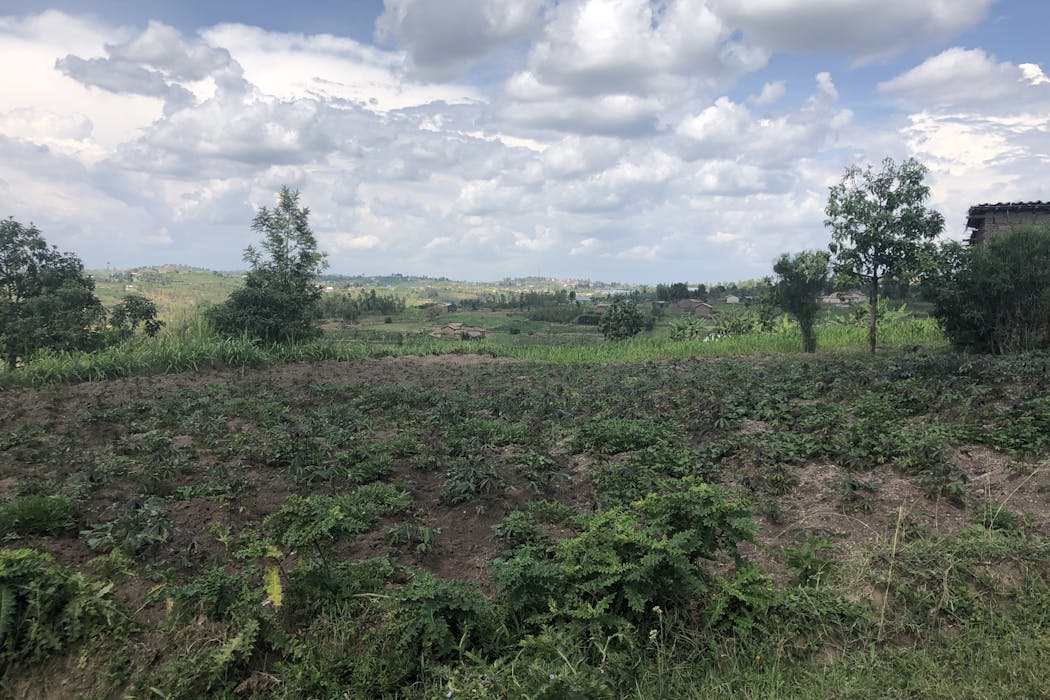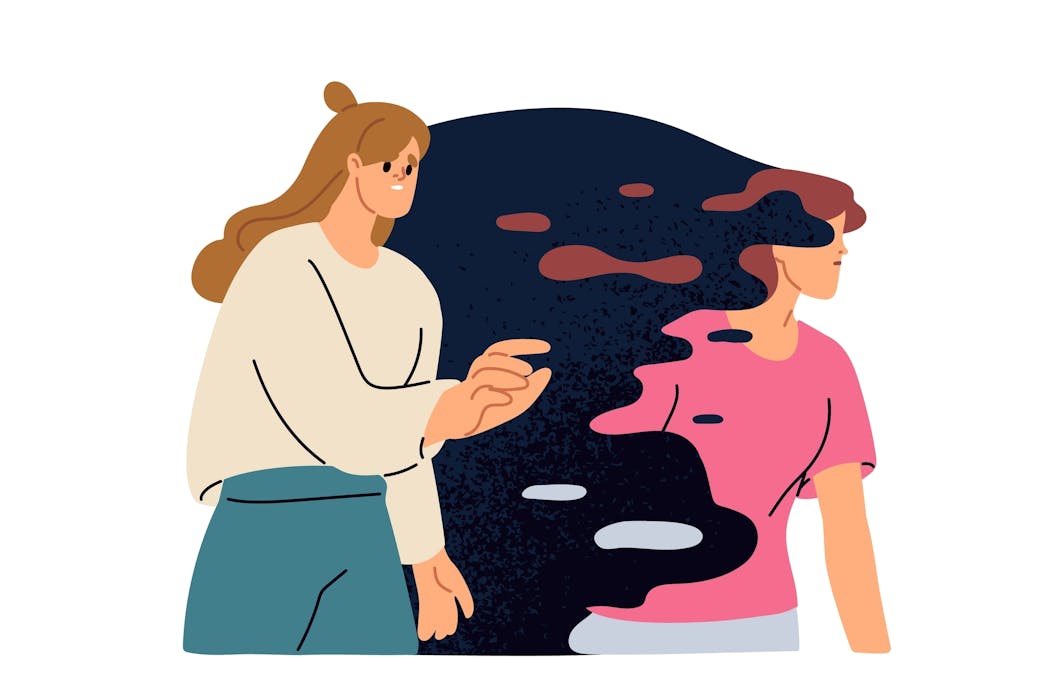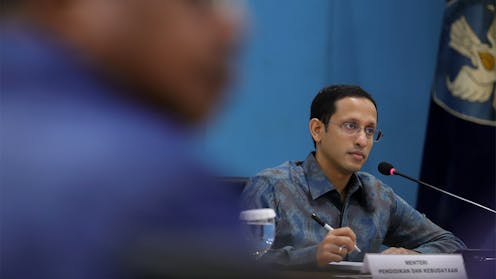How to conduct post-atrocity research – key insights from practitioners in the field
- Written by Christopher P. Davey, Lecturer in Political Science, Binghamton University, State University of New York

From Gaza to Myanmar and Sudan, communities around the globe continue to suffer the consequences of war, civil strife and sectarian violence. Indeed in 2024, 111 countries experienced some form of mass atrocity[1] against civilians.
While it is crucial to support these communities now through humanitarian aid and pressure on parties to end the violence, it is also important to continue the work once the fighting has ended by documenting the atrocities and elevating the voices of victims and survivors. Doing so helps the process of reconciliation and peace-building.
Yet fieldwork in post-atrocity settings is never straightforward. It is complex, emotionally demanding and marked by ethical risks.
In a recent article[2] published in the peer-reviewed Journal of Genocide Research, we six scholars, with decades of experience in over 15 countries – including Burundi, Cambodia, the Democratic Republic of Congo, Nicaragua and Rwanda – offered a behind-the-scenes look at the challenges of working in these environments and steps toward more responsible, inclusive and ethical fieldwork.
As more post-conflict zones open up to researchers and practitioners – from Syria[3] to Ukraine[4] – we came up with five lessons to address core challenges in the field and offer guidance to ensure that practitioners follow a “do no harm[5]” approach:
1. Don’t let marginalized voices be an afterthought
From my experience, post-atrocity fieldwork can too often rely on collections of firsthand accounts that include only, or for the most part, men. Women’s stories of intervening in mass violence tend to be largely absent.
This reflects how post-atrocity research often overlooks the impact of gender norms and hierarchies. Depending on local cultures, women are often portrayed as victims by researchers, but men are frequently the voices of everyone’s experiences.
Women have traditionally been excluded in post-atrocity research simply because no one asked them. Their experiences were dismissed as indistinct from men’s, shaped by patriarchal assumptions about heroism. There may also be reasons around the culture or stigma of surviving violence that silence women’s voices.
Yet my interviews revealed women played vital roles — saving lives, resisting violence and halting militias. Ironically, it was often their political invisibility that enabled women’s acts of intervention.
As such, a best practice approach to post-atrocity fieldwork would involve researchers actively including marginalized voices from the outset — particularly women, racial and ethnic minorities, and members of groups historically excluded — and use methods that uncover how power, identity and visibility shape who gets remembered.
– Nicole Fox[6], associate professor of criminal justice, California State University, Sacramento
2. Positionality is a method, not just a mindset
Navigating positionality[7] – that is, a given individual’s place in society based on factors such as gender, class and race – in post-genocide research is both challenging and essential.
It’s not just about self-reflection; it’s about shaping how and why you ask questions in places where trust has been shattered.
Too often, researchers swoop in, collect stories and leave. But that does not truly capture the lived realities of people who have survived mass violence.
To avoid this, it is important to build teams that include both insiders and outsiders. For example, we put together a team to conduct fieldwork that included a Rwandan genocide survivor, a South African scholar and an American scholar. We came from different regions, disciplines and life experiences. Crucially, our Rwandan colleague was a full research partner as well as acting as a translator. His presence granted access and trust we could never have earned alone.
For researchers in sensitive contexts, building collaborative and thoughtful teams isn’t just ethical – it’s methodologically essential.
This commitment to critical reflection and research design also plays out in how researchers from the Global South navigate predominantly Western academic spaces.
– Stephanie Wolfe[8], professor of political science at Weber State University
As an African researcher among mostly Western scholars, I found that I was perceived as African first and researcher second – which was a double-edged sword.
It involved having to endure inquiries from colleagues that were often much more personal than professional, and having to prove sufficiently “Africanness” to white researchers.
Such experiences made it hard to be taken seriously. As one of the few African-born scholars in the post-atrocity research space working in the U.S., it was important not to be an outsider. Positionality isn’t a footnote – it’s your lens and lived experience.
As a field researcher, it is crucial to create spaces for more diverse scholars to be able to conduct research without being continually devalued or tested.
– Claudine Kuradusenge-McLeod[9], lecturer in peace, human rights & cultural relations at American University
3. Secondary trauma is real and needs our attention
If trauma results from direct experience, secondary trauma occurs where people are exposed to or interact with those who have experienced trauma firsthand.
Experiencing secondary trauma is an often-underappreciated dynamic of doing field research. Conducting interviews with survivors of violence can leave the researcher with images, sounds and vicarious connections to trauma.
Post-atrocity researchers then have a real need to receive appropriate training, support and therapy. Breaking down the silent-burden element of this kind of work and creating spaces to talk and share this element of working with trauma in post-atrocity situations would better prepare researchers for the field.
Creating lifelines, such as support networks, in the field and out, is essential to having the right support when it’s needed most. It is important that researchers also recognize that secondary trauma ties the practitioner to the field and our interviewees; this can be a resource for understanding violence and how it can be prevented.
Universities can help researchers by providing resources to deal with secondary trauma. In addition, researchers themselves can find ways to talk about, share and process this kind of trauma.
– Chris Davey[10], lecturer in political science, Binghamton University
4. Building trust is a process, not just an outcome
Attempting to create trust while conducting research in a post-genocidal society is challenging, yet vital. Knowing and respecting cultural, linguistic and historical norms are important ways for researchers to follow the principle of “do no harm.”
In post-atrocity contexts, researchers have to contend with navigating complex sociopolitical dynamics to determine who they can trust, what organizations should be partnered with, and what is safe to do, ask or even publish.
In some cases, researchers may also choose what not to do – such as stopping or declining an interview if it might put someone at risk. Practitioners are responsible for minimizing risk when working in communities that have experienced a complete breakdown of trusting relationships.
Recognizing this dynamic can prepare researchers to preempt potential issues and manage unintended harm in a community that is already struggling to rebuild social trust.
Importantly, trust-building shouldn’t be seen as a means to an end, but as part of a process through which practitioners do no harm in the field and mitigate risk for partners who live in the research setting.
– Samantha Lakin[11], Senior Fellow, Center for Peace, Democracy, & Development, UMass Boston
5. Navigating bureaucracy and authoritarian spaces
Knowing how to safely navigate bureaucracy is crucial for keeping researchers and field-based teams safe in post-atrocity settings.
Whether this means carrying documentation around, taking additional time to meet with authorities to get their approval for research, or being able to provide forms of compensation to officials, researchers need to be prepared.
Taking this time might mean delaying engaging directly with survivors or other research participants, but it can often lead to insights about the local context, safety and the intersectionality of officials who might have unique takes on research themes.
Working with local partners, like GEC-SH[12] in eastern Democratic Republic of Congo, to identify expectations in the field and learn from this existing expertise is key to successfully navigating bureaucracy – as is allocating additional time to cooperate with authorities and to understand the local context – including practices that might be characterized as “bribes.”
– Chris Davey[13], lecturer in political science, Binghamton University
References
- ^ experienced some form of mass atrocity (theconversation.com)
- ^ recent article (doi.org)
- ^ Syria (theconversation.com)
- ^ Ukraine (globalinitiative.net)
- ^ do no harm (doi.org)
- ^ Nicole Fox (scholars.csus.edu)
- ^ positionality (indigenousinitiatives.ctlt.ubc.ca)
- ^ Stephanie Wolfe (www.linkedin.com)
- ^ Claudine Kuradusenge-McLeod (www.american.edu)
- ^ Chris Davey (www.binghamton.edu)
- ^ Samantha Lakin (www.umb.edu)
- ^ GEC-SH (gecshceruki.org)
- ^ Chris Davey (www.binghamton.edu)
Authors: Christopher P. Davey, Lecturer in Political Science, Binghamton University, State University of New York





